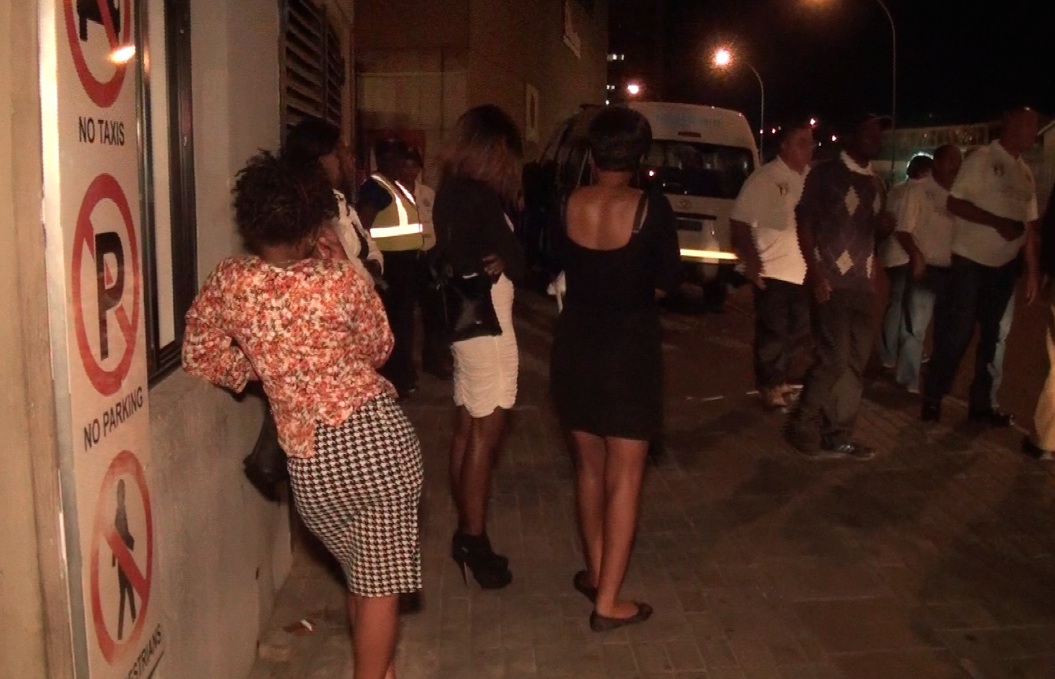Abuse of sex workers chronic in Namibia
Local and international NGOs have submitted allegations of cruel, inhumane and degrading treatment of sex workers in Namibia to a United Nations committee.
Namibian authorities stand accused of failing to meet multiple obligations under the Convention Against Torture (CAT) in relation to addressing severe abuse suffered by Namibian sex workers at the hands of authorities and the community.
In a strongly worded submission to the UN committee which is currently reviewing Namibia''s commitment to the convention against torture, a group of local and international NGOs working with sex workers detailed an extensive list of cruel, inhumane and degrading treatment of sex workers in Namibia.
The submission notes that in accordance with the definitions of torture defined by the convention, the various abuses faced by sex workers in Namibia are chronic and a lack of intervention and protection by authorities perpetuate the abuses on a daily basis.
The submission asks that the torture committee characterise the treatment of sex workers in Namibia as being in violation of CAT and compel the government to act.
“Namibia must address the systematic torture and cruel, degrading and inhumane treatment of sex workers in order to properly comply with its obligations under CAT,” the report states.
The submission states that “severe physical, sexual and mental suffering is frequently inflicted upon sex workers for reasons including intimidation, coercion, and discrimination based on their status as sex workers, by, at the instigation of, or with the acquiescence of Namibian law enforcement.”
One of the recommendations contained in the report is to decriminalise sex work in Namibia in order to effectively deal with the abuse and to establish legal procedures to investigate allegations of torture and provide victims with redress.
Chief among the allegations is that the criminalisation of sex workers in Namibia has given free rein to police officers, health workers and clients and the community at large to abuse sex workers in a multitude of ways, without fear of consequences.
The report states that abuse suffered at the hands of private individuals is often ignored by the authorities.
“Such abuse is tolerated, even normalised, by the lack of action on the part of the state.”
The report describes the “active hostility of police officers towards sex workers” as a signal of consent which “emboldens ill-intentional private actors to abuse sex workers with impunity”.
The NGOs write that police “chronically fail” to investigation crimes reported by sex workers and claim that after being stabbed and beaten by a criminal one sex worker reported that she was threatened with arrest after reporting the case.
As such, many sex workers refuse to report incidents of abuse for fear of harassment by the police.
The unsolved murders of sex workers documented in the report are an example of how a lack of law enforcement exposes sex workers to “heightened violence and danger”.
Some health workers are accused of neglecting to provide basic health services to sex workers, with the report claiming that their jobs are cited as a justification of refusing to provide access to HIV testing and treatment.
Condoms are allegedly routinely confiscated from sex workers on the basis of the criminal status the work.
The group''s submission includes a quote from a report compiled by a special rapporteur on extreme poverty and human rights in 2012, which states that Namibia''s failure to decriminalise sex work has resulted in a “climate of stigma, discrimination and violence surrounding sex work”.
The UN special rapporteur said this severely compromised the personal safety of sex workers and their right to equal protection under the law.
The NGOs state that although the convention compels Namibia to protect individuals from torture and degrading treatment, such actions are widespread and Namibia''s lack of remedial action is in “clear violation of CAT”.
The submission concludes with numerous recommendations, including the implementation of anti-torture laws, a requirement of the convention.
Independent complaint mechanisms should be established for individuals to avoid ill-treatment as a consequence of the complaint and to protect individuals from abuse at the hands of authorities.
Public awareness campaigns should be initiated and public health officials should be trained to provide confidential and non-discriminatory healthcare services.
The Torture of Sex Workers in Namibia report was submitted by the Voice of Hope Trust, the Rights not Rescue Trust and the Walter Leitner International Human Rights Clinic.
JANA-MARI SMITH
In a strongly worded submission to the UN committee which is currently reviewing Namibia''s commitment to the convention against torture, a group of local and international NGOs working with sex workers detailed an extensive list of cruel, inhumane and degrading treatment of sex workers in Namibia.
The submission notes that in accordance with the definitions of torture defined by the convention, the various abuses faced by sex workers in Namibia are chronic and a lack of intervention and protection by authorities perpetuate the abuses on a daily basis.
The submission asks that the torture committee characterise the treatment of sex workers in Namibia as being in violation of CAT and compel the government to act.
“Namibia must address the systematic torture and cruel, degrading and inhumane treatment of sex workers in order to properly comply with its obligations under CAT,” the report states.
The submission states that “severe physical, sexual and mental suffering is frequently inflicted upon sex workers for reasons including intimidation, coercion, and discrimination based on their status as sex workers, by, at the instigation of, or with the acquiescence of Namibian law enforcement.”
One of the recommendations contained in the report is to decriminalise sex work in Namibia in order to effectively deal with the abuse and to establish legal procedures to investigate allegations of torture and provide victims with redress.
Chief among the allegations is that the criminalisation of sex workers in Namibia has given free rein to police officers, health workers and clients and the community at large to abuse sex workers in a multitude of ways, without fear of consequences.
The report states that abuse suffered at the hands of private individuals is often ignored by the authorities.
“Such abuse is tolerated, even normalised, by the lack of action on the part of the state.”
The report describes the “active hostility of police officers towards sex workers” as a signal of consent which “emboldens ill-intentional private actors to abuse sex workers with impunity”.
The NGOs write that police “chronically fail” to investigation crimes reported by sex workers and claim that after being stabbed and beaten by a criminal one sex worker reported that she was threatened with arrest after reporting the case.
As such, many sex workers refuse to report incidents of abuse for fear of harassment by the police.
The unsolved murders of sex workers documented in the report are an example of how a lack of law enforcement exposes sex workers to “heightened violence and danger”.
Some health workers are accused of neglecting to provide basic health services to sex workers, with the report claiming that their jobs are cited as a justification of refusing to provide access to HIV testing and treatment.
Condoms are allegedly routinely confiscated from sex workers on the basis of the criminal status the work.
The group''s submission includes a quote from a report compiled by a special rapporteur on extreme poverty and human rights in 2012, which states that Namibia''s failure to decriminalise sex work has resulted in a “climate of stigma, discrimination and violence surrounding sex work”.
The UN special rapporteur said this severely compromised the personal safety of sex workers and their right to equal protection under the law.
The NGOs state that although the convention compels Namibia to protect individuals from torture and degrading treatment, such actions are widespread and Namibia''s lack of remedial action is in “clear violation of CAT”.
The submission concludes with numerous recommendations, including the implementation of anti-torture laws, a requirement of the convention.
Independent complaint mechanisms should be established for individuals to avoid ill-treatment as a consequence of the complaint and to protect individuals from abuse at the hands of authorities.
Public awareness campaigns should be initiated and public health officials should be trained to provide confidential and non-discriminatory healthcare services.
The Torture of Sex Workers in Namibia report was submitted by the Voice of Hope Trust, the Rights not Rescue Trust and the Walter Leitner International Human Rights Clinic.
JANA-MARI SMITH





Comments
Namibian Sun
No comments have been left on this article